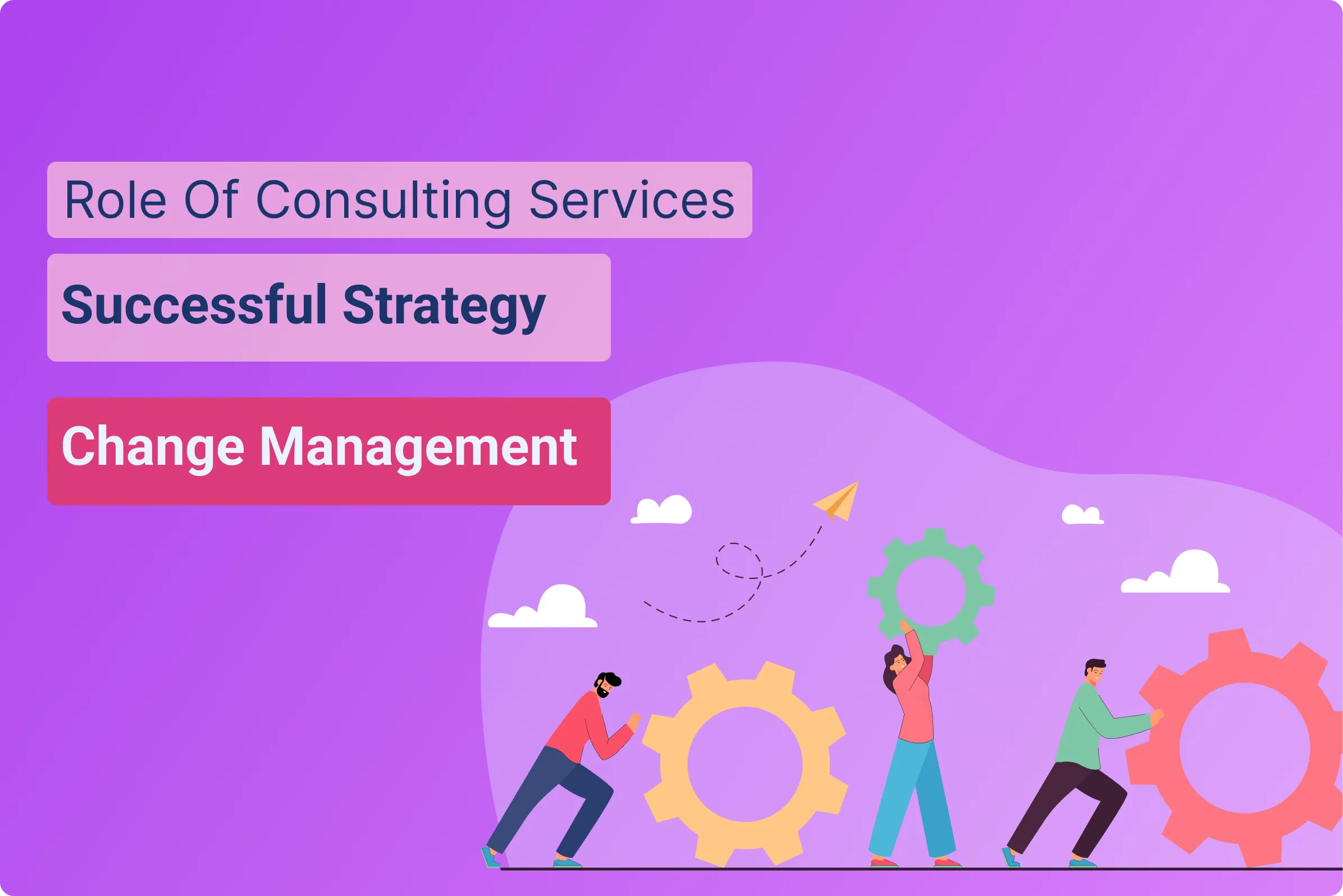
Change management is a crucial process for organizations aiming to adapt to evolving environments, implement new technologies, or improve overall efficiency. Consulting services play a dynamic role in guiding businesses through successful change initiatives.
Here are some strategies that consulting services can employ to facilitate effective change management:
- Assessment and Planning:
Current State Analysis: Consultants assess the organization’s current state, identifying strengths, weaknesses, opportunities, and threats.
Change Readiness Assessment: Evaluate the organization’s inclination for change, including employee attitudes, culture, and existing processes.
Strategic Planning: Develop a comprehensive change management plan aligned with the organization’s goals and objectives.
2. Stakeholder Engagement:
Identify Key Stakeholders: Identify and engage with key stakeholders at all levels of the organization to ensure their support and involvement.
Communication Strategies: Develop effective communication plans to keep stakeholders informed about the changes, addressing concerns and creating a positive outlook.
3. Leadership Development:
Leadership Training: Train leaders on change management principles, effective communication, and how to lead during times of transition.
Change Leadership Teams: Establish dedicated change leadership teams responsible for guiding and overseeing the change process.
4. Employee Involvement:
Inclusive Decision-Making: Involve employees in the decision-making process to ensure their ideas and concerns are considered.
Training and Development: Offer training programs to equip employees with the skills to adapt to new processes or technologies.
5. Communication Strategies:
Transparent Communication: Open and transparent communication channels to address questions, concerns, and feedback need to be maintained.
Multichannel Communication: Utilize various communication channels (meetings, emails, intranet, etc.) to reach a diverse audience effectively.
6. Change Support and Resources:
Resource Allocation: Ensure that sufficient resources, including time, budget, and personnel, are allocated to support the change initiatives.
Change Champions: Identify and empower change champions within the organization to act as advocates and support agents for the change.
7. Monitoring and Evaluation:
– Key Performance Indicators (KPIs): Define and track KPIs to measure the change initiative’s success.
Feedback Mechanisms: Establish feedback loops to continuously assess and adjust the change management strategy based on evolving needs.
8. Flexibility and Adaptability:
Agile Approach: Embrace an agile mindset, where the organization should navigate the change process through flexibility and adaptability as the organization navigates.
Continuous Improvement: Encourage a culture of continuous improvement, learning from experiences, and applying lessons to future change initiatives.
9. Risk Management:
Risk Assessment: Identify potential risks associated with the change and develop mitigation strategies.
Contingency Plans: Have contingency plans in place to address unexpected challenges that may arise during the change process.
10. Post-Implementation Support:
Ongoing Support: Provide ongoing support after the implementation to address any issues, reinforce new behaviors, and ensure sustained success.
Celebrating Success: Acknowledge and celebrate milestones and successes achieved due to the change.
By implementing these strategies, consulting services can significantly contribute to the success of change management initiatives, ensuring that organizations navigate transitions smoothly and achieve their desired outcomes.
